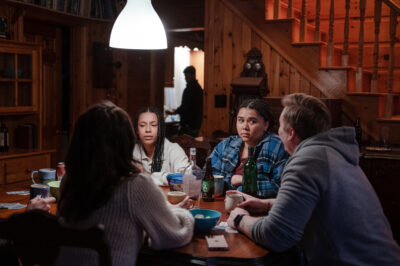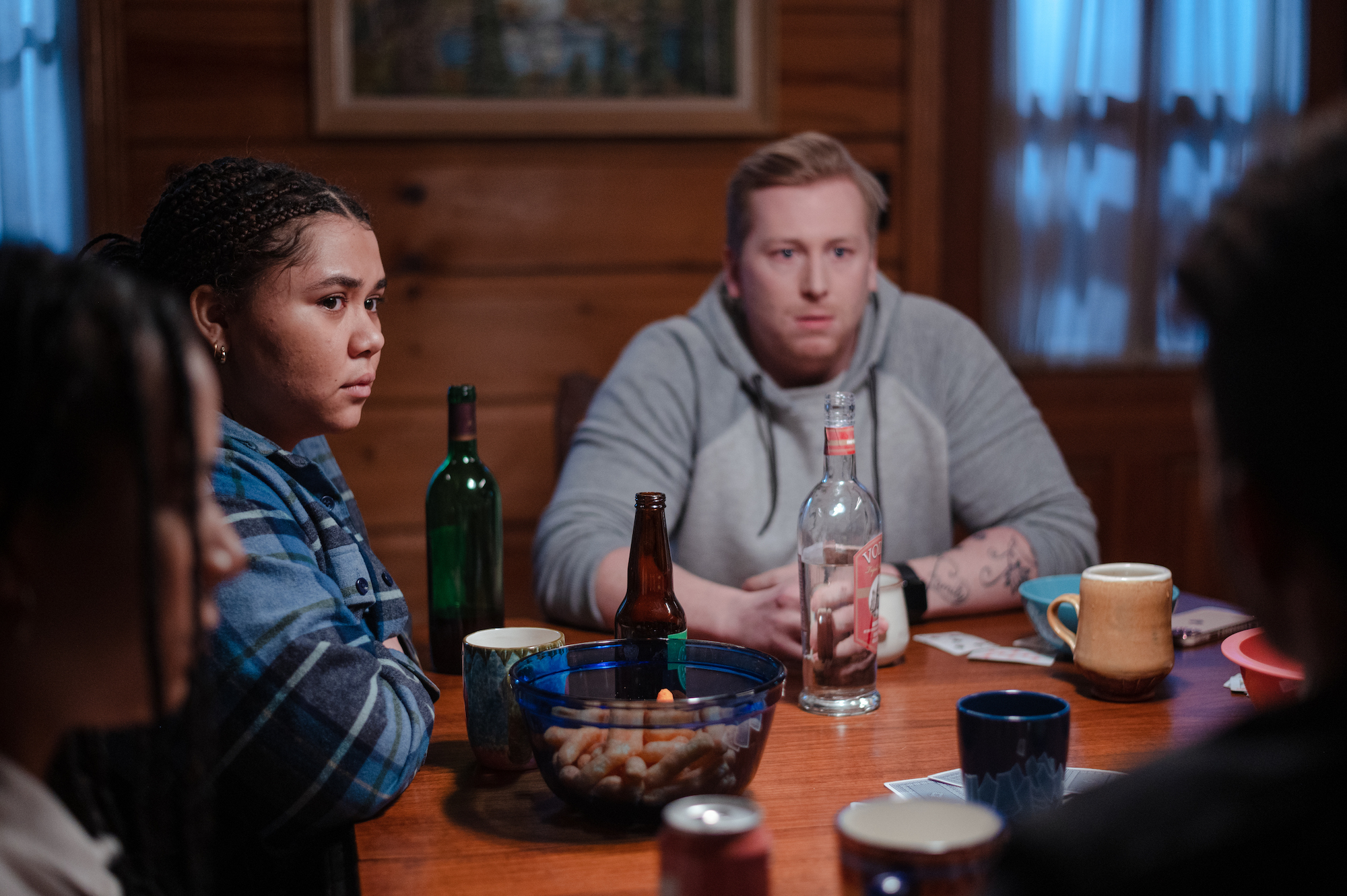When a film opens with a group of friends spending the weekend at a cabin in the woods, you know something terrible is going to happen. But instead of gruesome murders or supernatural mysteries, the horrors that unfold in Bystanders might hit a lot closer to home.
This provocative feature debut from Halifax filmmaker Koumbie follows “The Six”, a close-knit group of childhood friends now in their 20s, ready to enjoy their annual spring break getaway. But this year, the trip takes a turn when they discover some ugly truths about one of their friends. Justin, the golden boy of the group, is being accused of sexually assaulting a former girlfriend.
The news rocks and divides the friends — some instantly jump to Justin’s defense, others immediately cancel him, and others try to get to the bottom of the situation, asking questions that might not have satisfying answers.
“There are many stories about victims, survivors, perpetrators and assaulters,” writes Koumbie in their director’s statement. “This film isn’t about them. This is a story about the people who know them. The watchers, the onlookers, the flies on the wall – the bystanders.”
As the friends deal with the aftermath of this shocking news, their reactions run the gamut: from disbelief and denial to rage and disappointment. The film raises tough and uncomfortable questions for viewers, prompting them to think about how they would react if they discovered a dark truth about a close friend. What do you do when someone you love has done something horrible? How deep does friendship go? Is there a middle ground between instantly cutting someone off and supporting them unwaveringly? What does that grey area actually look like? Bystanders shows how everyone has different answers to these questions, and perhaps that there is no one correct way to respond.

Koumbie began writing Bystanders in 2016, before the #MeToo movement erupted. “At that point we kept saying, why is no one talking about this?!” she writes. “Statistically 1 in 4 women will experience some form of sexual violence in their lifetime. This means there is a very high probability that you know a man who has committed a form of sexual violence.”
Suddenly, with #MeToo, everyone was talking about the prevalence of sexual assault. And as women were speaking up, perpetrators were being exposed left and right. The situation in Bystanders unfolded among countless families and friend groups, raising tough questions that are still being asked today.
“We wondered if our story still had a place in the world. It’s seven years later and I’ve never been more convinced that it does. Because now the question isn’t is this problem real?, it’s what do we do about it?“
While some claim that the #MeToo movement has dissipated, recent films like Sarah Polley’s Women Talking and She Said are proof that many want to keep the conversation going. Bystanders shares this mission, but approaches the issue from a different perspective, presenting a muddled situation that anyone could easily find themselves in through no fault of their own, diving into the messy realities of confronting a loved one who has done something horrible.
Bystanders will be touring across Canada this month, with screenings and Q&As in Halifax, Ottawa, Hamilton, Vancouver and Calgary, and in Toronto on April 23. The film recently premiered at the Atlantic International Film Festival, where it took home the Best Atlantic Screenwriting Award.




 Follow Us On Instagram
Follow Us On Instagram
